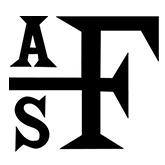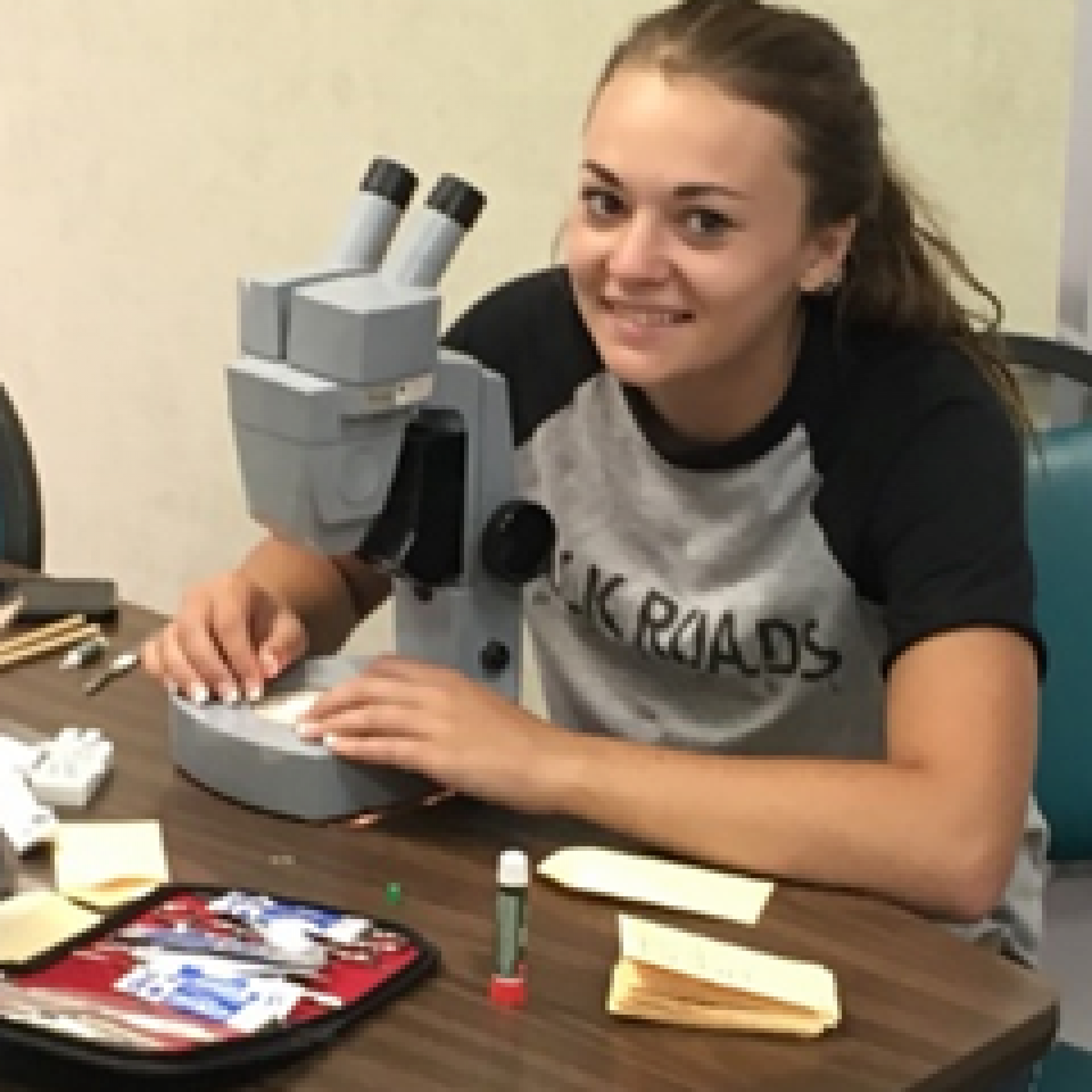
“This summer I have participated in an amazing program that I have gained experience from, learned from and had fun doing. Some of the projects I have participated in this summer have been: Learning how to do an eDNA test, hook and line sampling, gill netting for pike, tracking pike (by boat and by road), analyzing and handling crayfish, backpack electrofishing, attempting to find a temp meter, checking Northern Pike fry traps, studying Crystal Falls to see if it’s a boundary for Kokanee, entering in old creel survey data, performing creel surveys, and working inside the Colville Fish Hatchery and the Sherman Creek Hatchery. The most exciting project I took part in was probably gill netting for pike; I absolutely loved being out on a boat all day setting and retrieving gill nets. I also enjoyed seeing all the species that were caught besides the Northern Pike, like Smallmouth Bass, Walleye, and Northern Pike Minnow. When it comes to conservation, I really learned how important it is, especially with fish. I learned about this mostly from creel surveying when you could harvest sturgeon. I got to hear many stories about the overharvest, and why sturgeon season was cut short. I learned that without conservation it wouldn’t be long before we had nothing left. I believe the most important thing I learned from the Hutton Program is that hatcheries, fish biologists, and harvesting seasons are way more important than I ever thought they were. And how the world needs these things and that they are not just a luxury.”
—Autumn Frye (Mentor: Bill Baker, Washington Department of Fish and Wildlife, Colville)
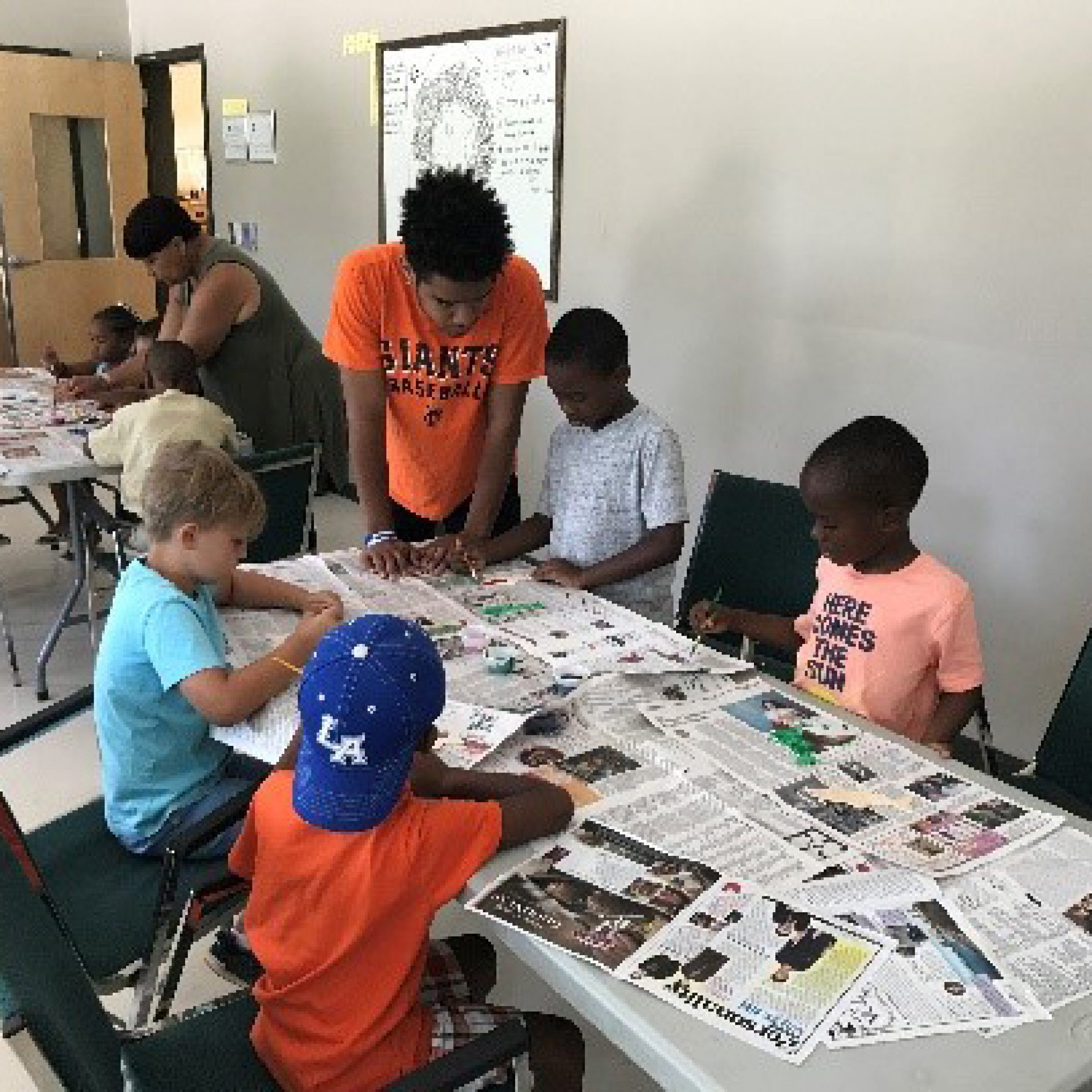
“While working at the fish farm, a major realization I had was that if one aspect of the fish farm isn’t functioning properly it can throw off a lot of things and turn a normal day into the fish farm into a super busy one. Every day I went to the fish farm I felt as if I was taught how to do what I needed to do if I didn’t already know how to do it. Valee Taylor also didn’t have me just do the cleaning and beginner stuff; I worked right alongside him. Ever since a young age, I have wanted to go Oregon State University and after participating in this program I still want to do so after my senior year of high school. I plan on studying fisheries and wildlife science if I get accepted. I would also get a GIS certification while in college. Thank you again for allowing me to participate in this program. Participating in this program has increased my interest in the industry greatly, allowing me to really see what a job like this consists of and what make it successful.”
—Nathan Bell (Mentor: Valee Taylor, Taylor Fish Farm, Cedar Grove, NC)
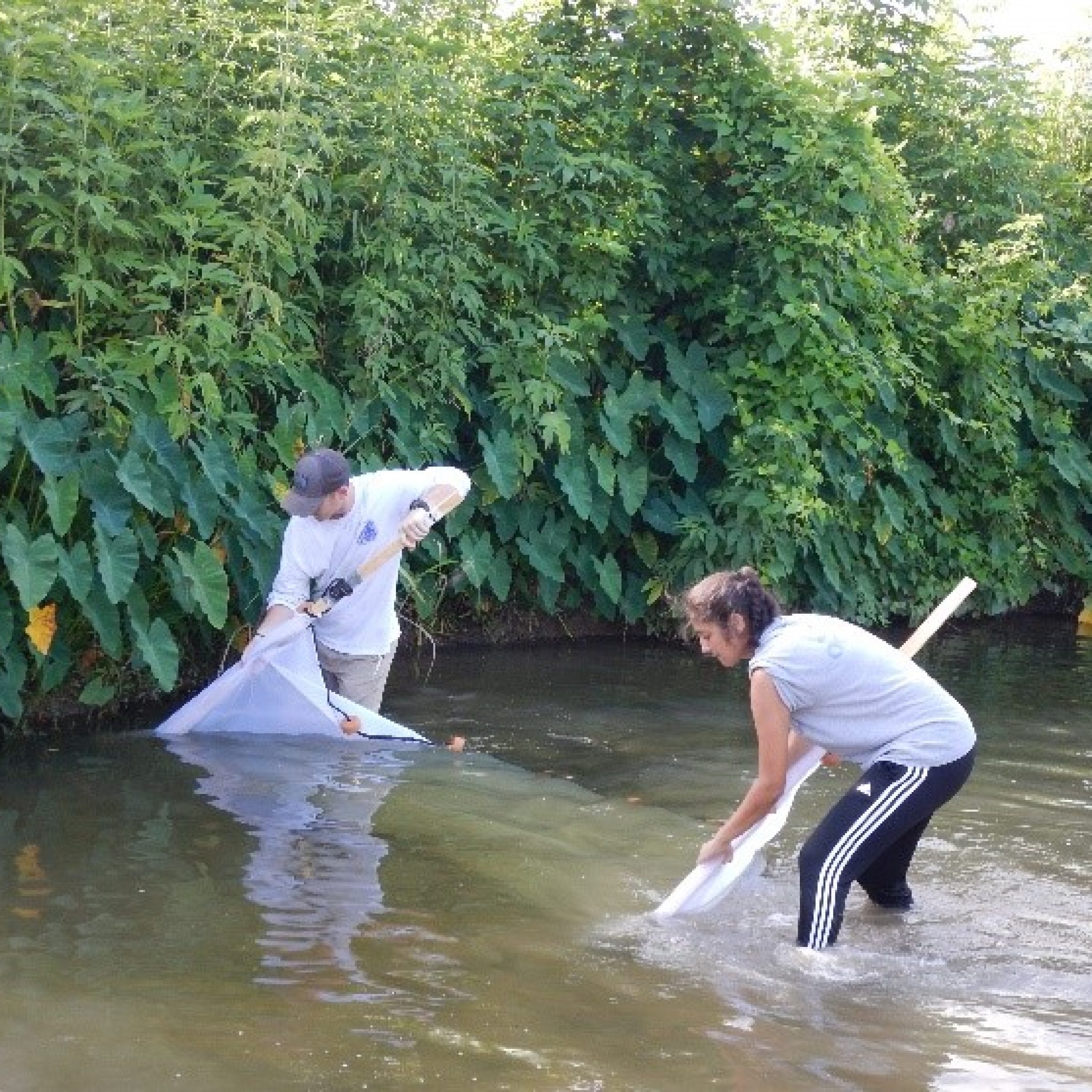
“I have already begun subtly recommending the program to my friends. They see how much more excited I am about biology as a whole compared to before summer so I hope they want to pursue the same program…I am thankful for the opportunity this program has given me and it will stick with me when I make my final decisions about my future.”
—Lilith Meng (Mentor: Carmen Montana, Sam Houston State University, Huntsville, TX)
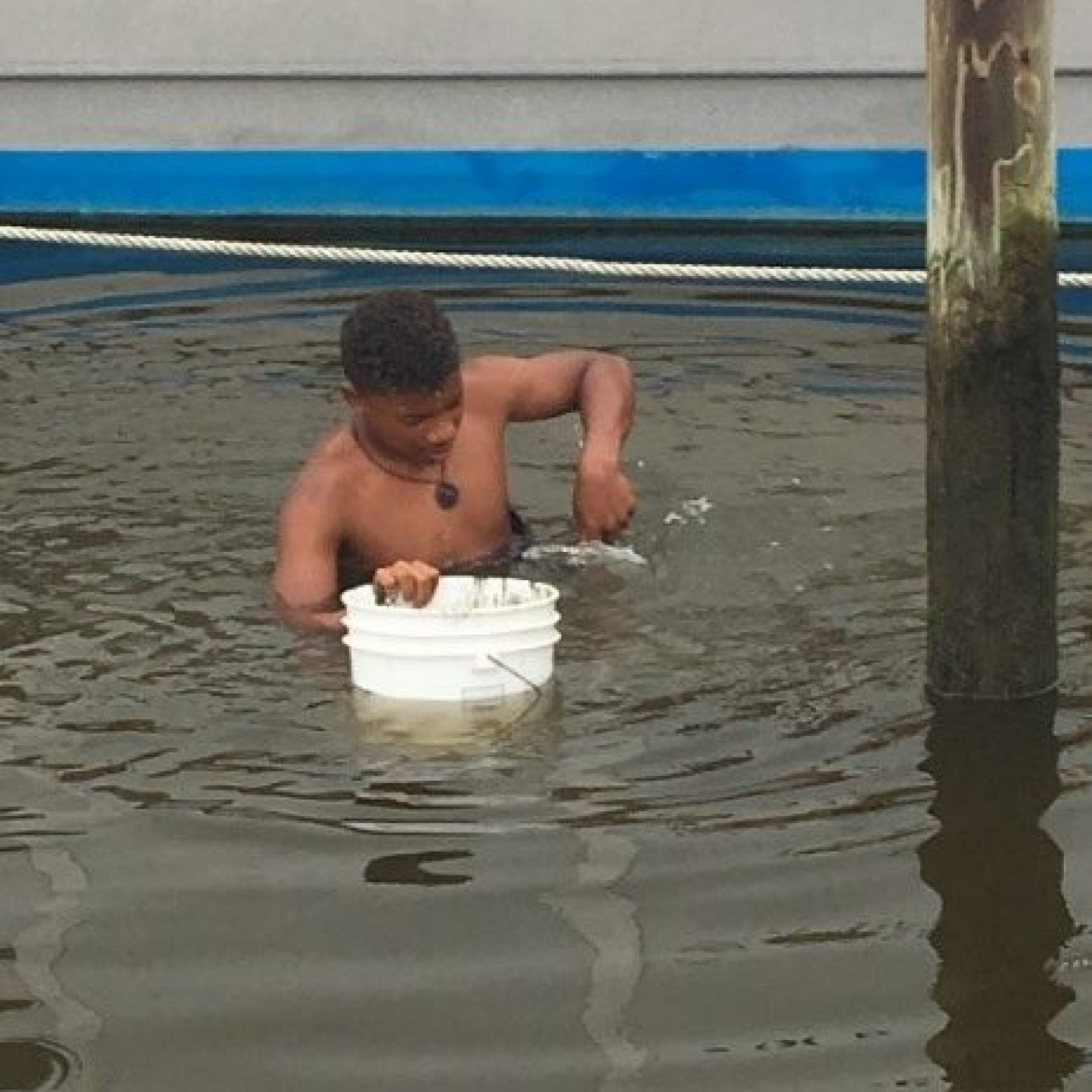
“The Hutton Program has allowed me to develop relationships with a variety of people who can help nurture my interests as an aspiring marine scientist. My mentor, Chris, is extremely well known throughout Long Island where I am stationed and working with him is a blessing because I’m working with one of the top scientists in the field of marine biology.”
—Artie Mabaka (Mentor: Christopher Gobler, Stony Brook University, Southhampton, NY)
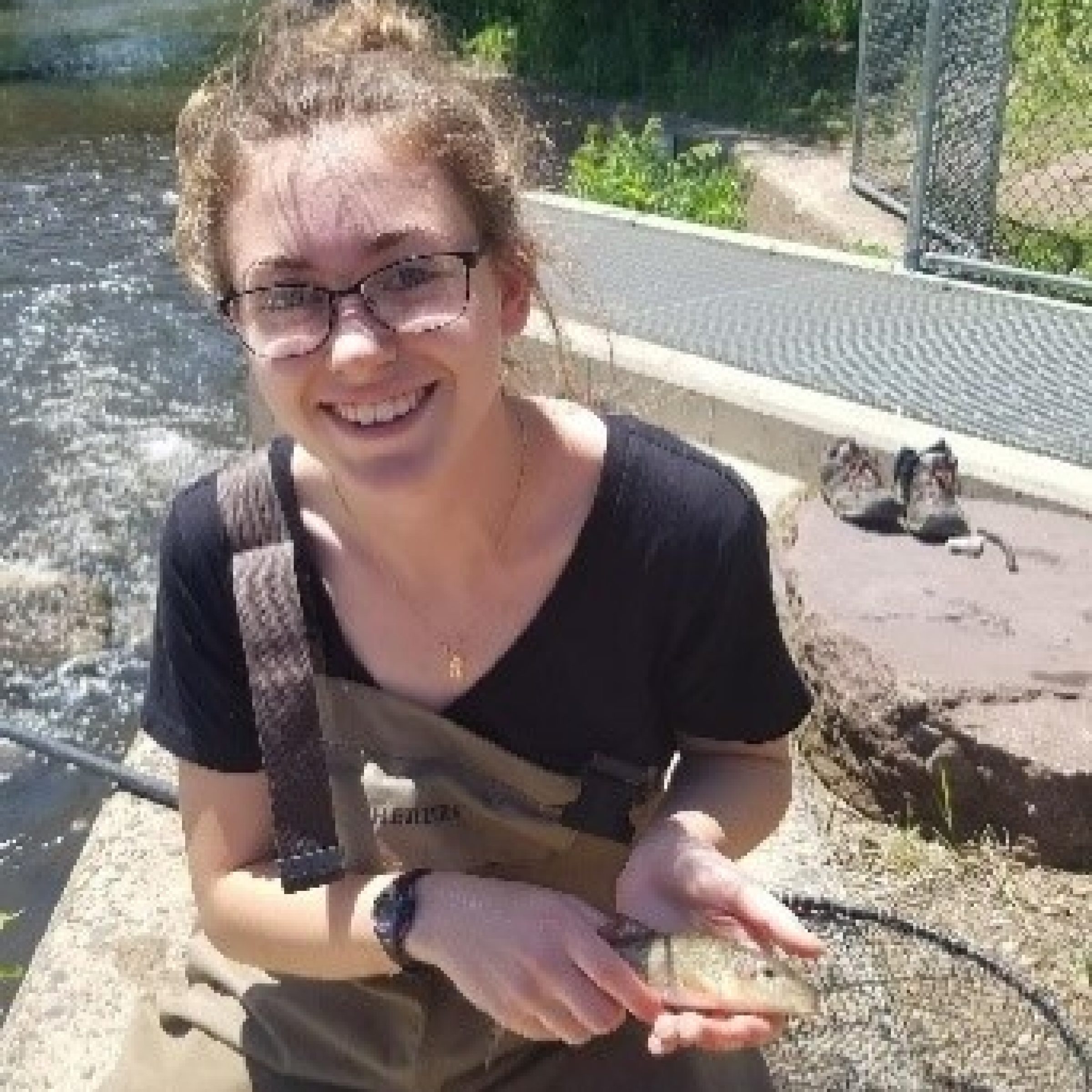
“Hutton has helped solidify my interest in fisheries and environmental science. I really enjoyed the projects and opportunities I had a chance to be a part of. It has also pushed me to think ahead and be proactive, especially if I am considering a more engineering focused major. I am going into my senior year of Portland High School. I plan to steer my high school education as much towards environmental science and fisheries as I can, which includes taking AP Environmental Science online. I am planning to go to college and Hutton has influenced my plans. I really enjoy the technology side of environmental majors so I want to see how I can combine the two.”
—Shannon Dolan (Mentor: Stephen Gephard, State of Connecticut, DEEP/Fisheries Division, Old Lyme)
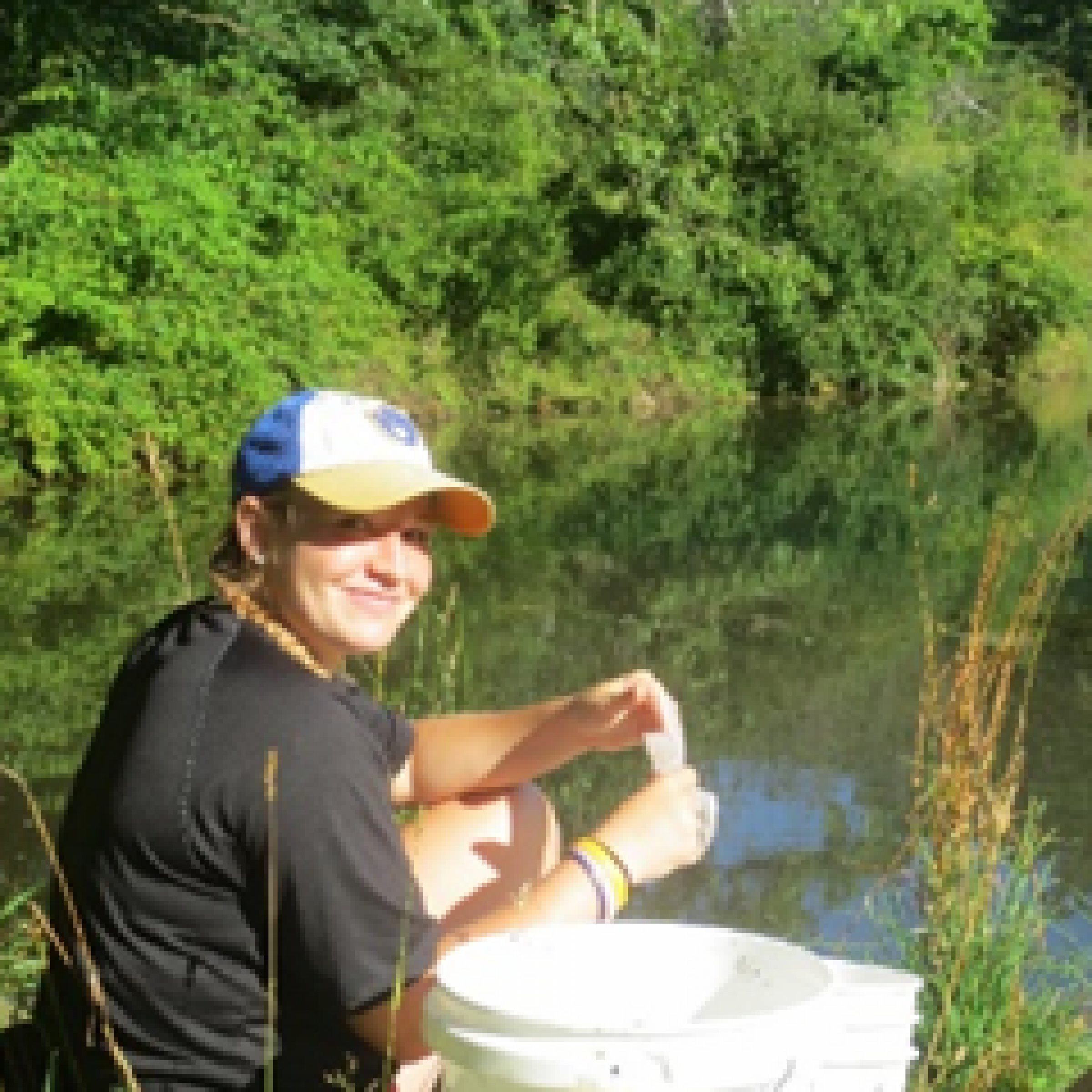
“This summer, I worked on a project focusing on Batrachochytrium dendrobatidis, Batrachochytrium salamandrivorans, and Ranavirus in amphibians around our area with my mentor, Isaac. A couple times each week, we went outside into the field to collect frogs in ponds around the area in Monroe, Vernon, and La Crosse County. Most of the species included but were not limited to: green frogs, leopard frogs, American toads, and bullfrogs; however, we also captured some wood frogs and tree frog tadpoles. We sampled and released everything we caught without harming them. I was even able to capture, sample, and test our catches. After sampling, we would go back to the lab, and I extracted all of the samples from that day. I organized and recorded all of the samples into our record book, and later, I quantified all the extractions and put the data into a spreadsheet on the computer.
I think the most exciting moment for me was capturing three central newts. I have never before seen newts in real life, so capturing three, I was very interested. They are a lot smaller than I thought they would be as adults. I also learned about their lifecycle and that they only live in fishless ponds. They are born in the water and venture onto land for a couple years as juveniles, and then, they return back to the water to live out their adult years.”
—Noel Schmitz (Mentor: Isaac Standish, U.S. Fish and Wildlife Service Midwest Fisheries Center, Onalaksa, WI)
